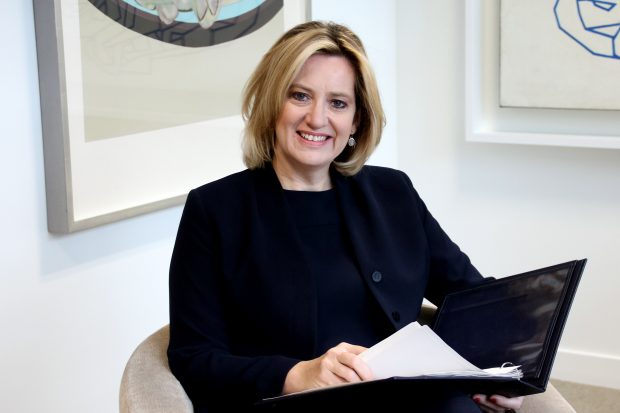Red Box has today carried an opinion piece from the Home Secretary on the wide ranging work the Government is doing to support and resettle refugee children
Amber Rudd, Home Secretary:
The humanitarian crisis in Syria is one of the great moral challenges of our time. I’m proud of this government’s response, including doing more than ever before to help care for and support refugee children.
I think it does disservice to the UK’s big-heartedness and goodwill if our record of taking in thousands of the world’s most vulnerable children is not fully recognised.
The focus is on “Dubs children” already in Europe, but the reality is that in the last year we took in 8,000 children and settled them here.
By 2020 we will have resettled 20,000 vulnerable Syrian nationals. About half of them will be children, and a further 3,000 will be some of the most vulnerable children and their families from the Middle East and North Africa.
These are the actions of a government determined to help the most vulnerable children.
We believe the best way of doing this is by resettling refugees directly from the camps in and around Syria.
This is how we can break the reprehensible business model of traffickers and smugglers and stop them from exploiting vulnerable people and children affected by conflict and prevent them from embarking on perilous journeys across the Mediterranean.
One of the first trips I did as home secretary was to Italy to meet the brave coastguards there who rescue tens of thousands of people each year in the Mediterranean. Tragically, not everyone is rescued. Last year nearly 5,000 people died trying to make this dangerous journey, including at least 700 children.
Sadly, for those who do survive the journey this can be the beginning of their suffering, as they owe thousands of pounds to people traffickers who try to smuggle them through Europe.
That’s why I don’t believe we can continue to relocate children indefinitely from Europe under what has become known as the Dubs amendment.
The Dubs amendment required us to consult local authorities on how many additional children they can manage and that is exactly what we did. Let’s not forget that each year 3,000 children arrive in the UK and claim asylum and we are taking approximately 2,000–3,000 each year through resettlements schemes. It’s not job done when these children get to the UK. All of these children need support and protection, as do the British children in our care system.
If local authorities do come forward with any further spare capacity then we welcome those places to support the unaccompanied children already being cared for in the UK and those who continue to arrive and claim asylum. Some local authorities are currently taking a disproportionate share of this burden and are struggling to place the children in their care.
Having met our legal obligation we must now focus on the ground-breaking work we are doing around the conflict zone in Syria.
Let’s be clear: this is where the most vulnerable children are, not those who have made the crossing to Europe. Our work in Calais showed this. Fewer than 10 of the 750 children we brought to the UK were Syrian.
As well as bringing record numbers of the most vulnerable refugee children from the Middle East we’re also providing record levels of funding with £2.3 billion to help those people whose best interests are served by remaining in the region.
Last year we were able to provide healthcare, education and support to over 800,000 children in Syria and the surrounding countries for the same investment that it would take to support 3,000 unaccompanied asylum-seeking children in the UK.
Britain really is doing more than ever before to help and we should be proud of this effort. It’s why Filippo Grandi, the UN High Commissioner for Refugees, has described our resettlement schemes as ”remarkable” and believes we have a ”comprehensive” response to the migration crisis. We must stick with this approach so we continue to help some of the most vulnerable children in the world and hinder some of the most evil people in the world trafficking children across the Mediterranean.

